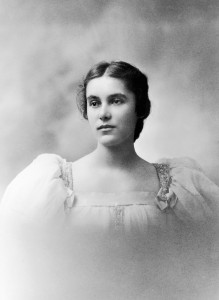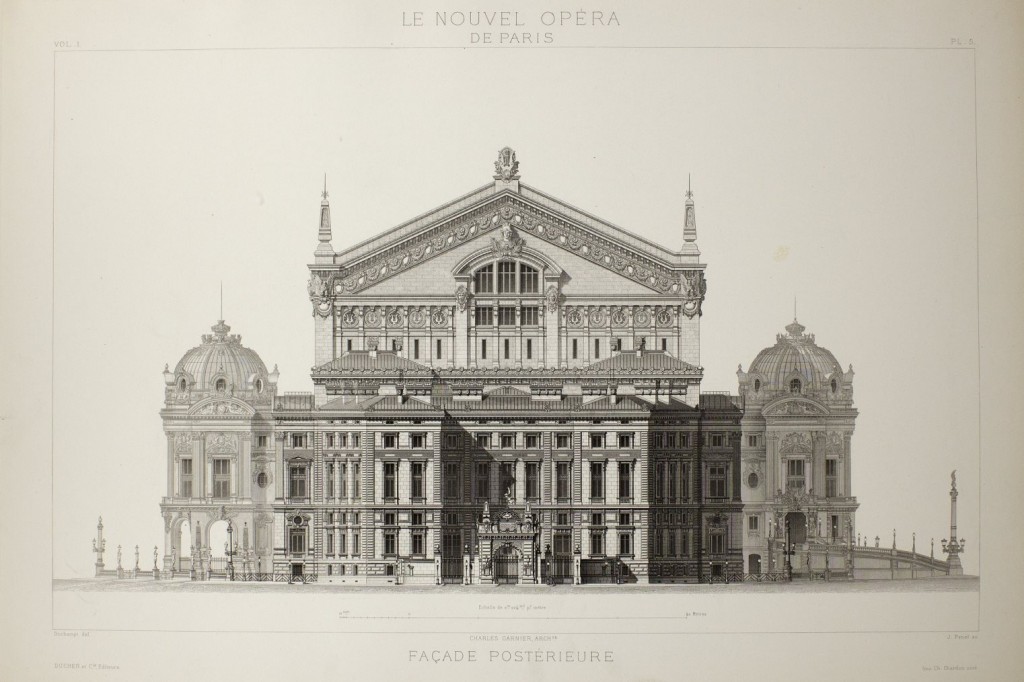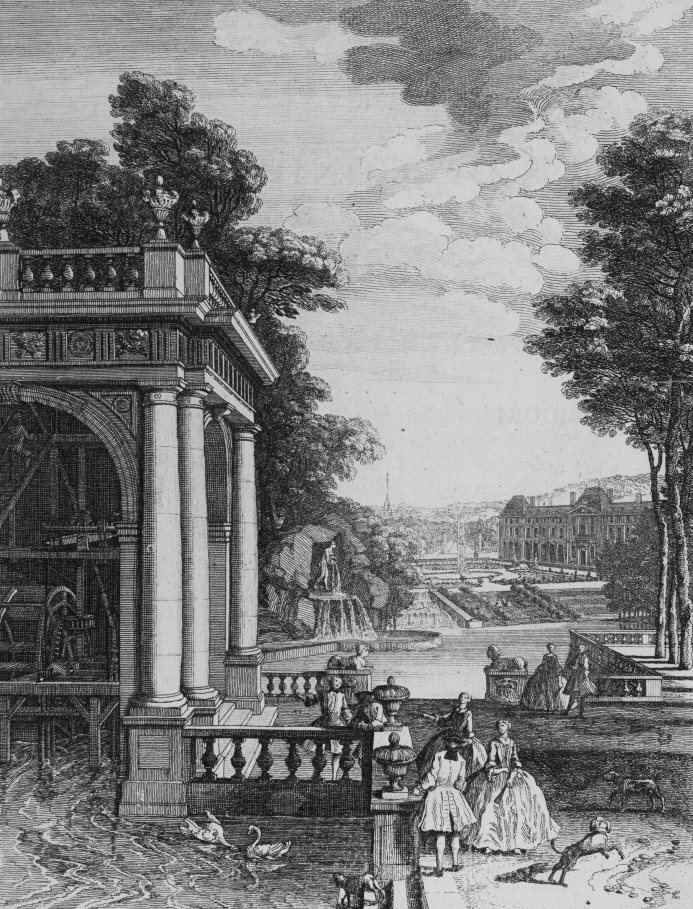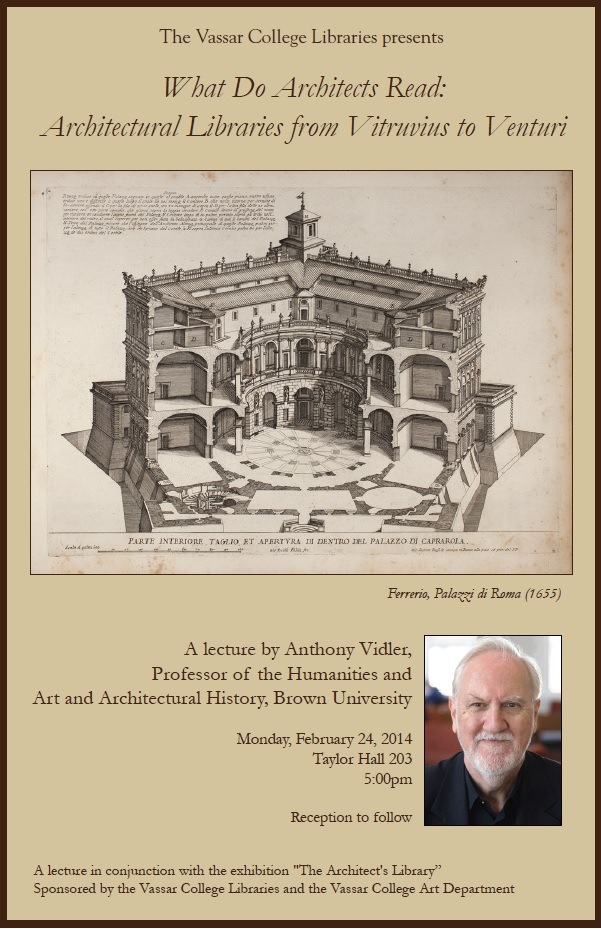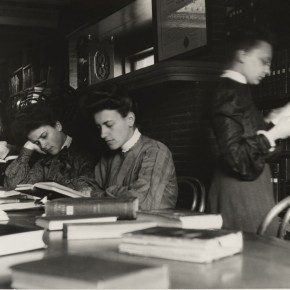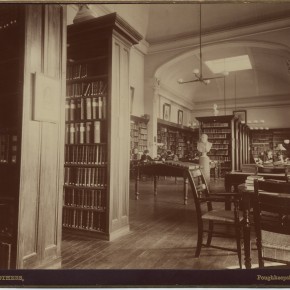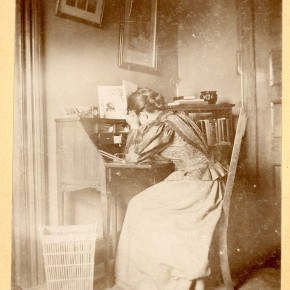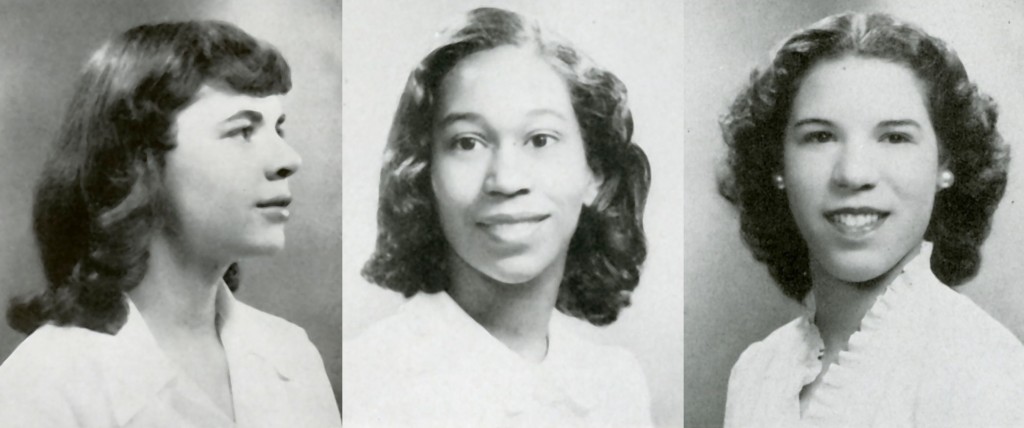
Beatrix McCleary, June Jackson, and Camille Cottrell: 1944 and 1944-5 Vassarions.
February is African American History Month. The story of race at Vassar is long and complex, and a blog is hardly the forum to try to address even half of it, but one question that comes up time and again here in Archives and Special Collections is, “Who was the first Black graduate of Vassar College?” The quick answer is Anita Hemmings, VC 1897. Her story has been told in the Miscellany News, the Vassar Quarterly, and elsewhere. Often mentioned in the articles about Hemmings is her daughter, Ellen Love, who was a member of the class of 1927. There is less discussion, however, of Beatrix McCleary, VC 1944, Camille Cottrell, and June Jackson, both VC 1945-4 — and one could make the argument that it was those three women who were truly the first African Americans admitted to Vassar.
Anita Hemmings was of African American descent, and did indeed graduate from Vassar, but no one at Vassar knew she was Black until a few weeks before graduation. Hemmings had “passed” as white for four years, but in the spring of 1897, the father of a suspicious roommate undertook an investigation of Hemmings’ family in Boston, and revealed her heritage. Hemmings was allowed to graduate, but the faculty and trustees had to take the matter under consideration. There are no records of the trustee conversations on the issue, but not only did Hemmings graduate, she returned the following year for reunion. Hemmings’ daughter, Ellen Love, was also a Vassar graduate. She was raised in New York, where her mother continued to pass as white, as did her father, Dr. Andrew Love. It seems unlikely that someone in the Vassar administration didn’t make the connection between Hemmings and their daughter, but Love was admitted and graduated without incident. The college may have known Ellen Love’s family history, but it’s possible that Love herself didn’t know she had African American blood. Her parents raised their children to believe that they were white and seem to have broken ties with the “Blacker” sides of their families.
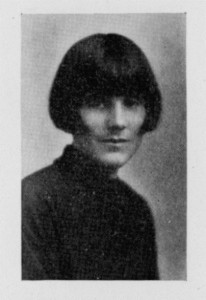
Ellen Love, 1927 Vassarion
So can we really say that Vassar was integrated with the arrival of Hemmings in 1894? No. Hemmings’ story is important, her bravery should be admired, and more research needs to be done about her experiences here. Indeed, the whole topic of passing is a painful and significant chapter in African American history, and how Hemmings fits into that story is well worth studying. However, Hemmings’ time at Vassar is not a tale of a college’s valiant stand for integration. As far as the world knew, Vassar did not accept African American students until 46 years later.
Beatrix McCleary Hamburg’s class will celebrate its 70th reunion this spring. Camille Cottrell Espeut and June Jackson Christmas will have theirs in 2015. All three have spoken fondly of their alma mater, but there’s no avoiding the truth that race was still an issue during thir time at Vassar. When asked if she experienced discrimination in college, Beatrix McCleary Hamburg said, “On the contrary, I felt that I was being killed with kindness.” But she also wrote that she was “bombarded” with questions about the Black world and felt that she “represented the Negro Problem — in capitals.” Both she and June Jackson Christmas felt that they were sometimes viewed not so much as fellow students, but rather as the answer to a larger social problem good liberal arts students should be concerned about. But there were more painful incidents as well, such as Christmas being told by a professor that a paper she’d written must have been plagiarized because “it didn’t sound like a Negro’s writing.” There were also things they might have suspected but never heard. In 1994, Phyllis Larsen reminisced at her 50th reunion about a night in 1942 when another white student became extremely uncomfortable after realizing she had accepted a seat at the same dining hall table as June Jackson. Larsen wondered if June realized what had happened. If she did, she certainly didn’t let on then, but she wrote later that sometimes the “personal pain at racist incidents was so deep that I could not share it with my new-found White friends…”
There’s so much more to research and ponder about the Black experience at Vassar. I’ve listed the sources I used for this brief post below, but if you have the interest and the opportunity, you are more than welcome to contact Archives and Special Collections to learn more. In the meanwhile, take a few minutes and watch this fascinating video featuring the first Black woman accepted at Vassar, Dr. Beatrix McCleary Hamburg:
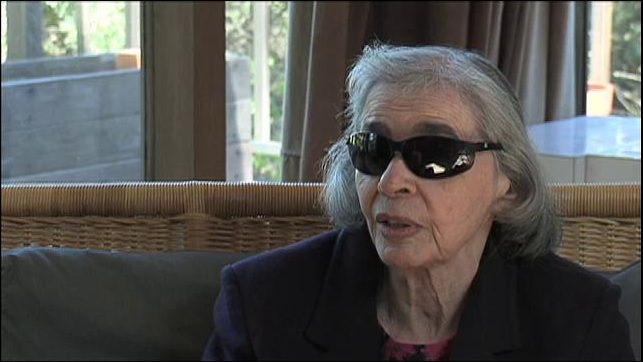
Video by Eric Hamburg, available at http://vimeo.com/25206310
Sources for further research:
- McCleary, Beatrix. “Negro Student at Vassar”, Vassar Quarterly. June 1946, p 15.
- Christmas, June Jackson. “A Historical Overview: The Black Experience At Vassar.”, Vassar Quarterly, Spring 1988, p 3.
- Mancini, Olivia. “Passing as White: Anita Hemmings.” Vassar Quarterly, Winter 2001.
- Perkins, Linda M. “The African American Female Elite: The Early History of African American Women in the Seven Sister Colleges, 1880-1960.” Harvard Educational Review, Winter 1997, p 718-756. Link to full text via VC Libraries
- Video interview by Eric Hamburg with his mother, Beatrix McCleary Hamburg, ca. 2012. Available at http://vimeo.com/25206310.
- Video interview of Beatrix Hamburg by Yale University, 2011. Available at: https://www.youtube.com/watch?v=n2OtwDfHwu8
- Video interview of Margaret Hamburg about her parents by Forbes Magazine, 2013. Available at https://www.youtube.com/watch?v=gsJUkioDeU8.
- “Pioneering Activism: A Conversation with Dr. June Jackson Christmas ’45-4,” Video interview with June Jackson Christmas by Joshunda Saunders (VC 2000) during the 30th anniversary celebrations of the African American Alumnae/i of Vassar College (AAAVC), 2015. Available at https://www.youtube.com/watch?v=uLKy9MMLHe0
- Reunion booklets for the Classes of 1944 and 1945-4, Archives and Special Collections.
- Vassar College Digital Library

